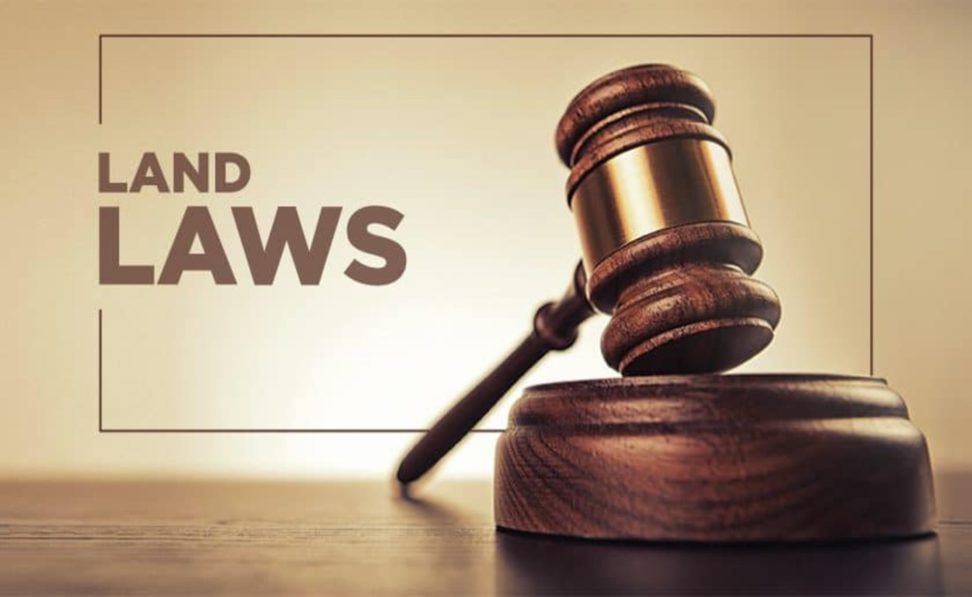A book titled ‘Customary land registry resource book’ contains the blueprint which was jointly prepared by the two entities. It launched on Tuesday, 19th October 2021.
The national Constitution, as the supreme law of the land, recognises customary, freehold, mailo, and leasehold tenure systems under Article 237. The provision is re-enacted in Section 3 of the Land Act. This clause totally reverses the old system where land was vested in the public land. Now, individuals’ rights to land have been secured because of occupation. The state no longer controls ownership of land in Uganda.
It’s notwithstanding that even with 75% of the total land in Uganda still being controlled under the customary tenure however, holders of land under this system do not have a formal title to the land they use but have secure tenure.
Derived from the more progressive 2014 Uganda National Land policy, the launched blueprint developed under the Land Act 1998 (as amended) that was enacted to “provide the framework for articulating the role of land in the national development, land ownership, distribution, utilisation, alienability, management, and land control.”
The formulators of the revised land law looked at transforming Uganda from a peasant to a modernised and urbanised country as the primary aim.
However, this elaborate policy has largely remained on paper because it lacks an enabling piece of legislation to back up implementing some of its more progressive provisions that cure the gaps in the Land Act that preceded it.
The revised land law has come when the Constitution and the Land Act 1998 are being set for amendments: a change by government account motivated partly by the desire to abolish Mailo tenure. The drafters of the new customary land tenure registry propose the creation of titling and registration of customary land in line with the culture and customs of user populations.
“The advocacy is to ensure the interests of members of a family or clan that collectively own such land are not adversely affected,” said Mr Jonathan Ochom, the acting chief executive officer of Landnet.
Presently, the government has registries for transaction records of leasehold, freehold, and mailo tenures, and customary landholders are often encouraged to convert ownership to freehold (personal landholding in perpetuity), a practice that Mr Ochom described as “lazy and wrong”.
He further added that the proposed customary land registry is a system that shows you who owns the land, its size, and location.
“It puts control to ensure that there is no unfairness on other clan members and the when a customary land title is issued, the land cannot be transferred without the consent of other clan members,” he added.
Ms Naome Kabanda, the acting director of land management at the Ministry of Lands, said they are collecting views from different stakeholders to inform them of the required changes to the 1998 Land Act.
Ms Kabanda also asserted that the ministry is grappling with the problem of constantly changing membership, qualification, and administration of land boards across newly created towns, districts, and cities.
“Almost 80 per cent of land in the country is customarily held, underlining the urgency with which the government should establish a registry for titling and registering customary land to stem widespread land grabbing,” added Ms Kabanda.
Mr Francis Gimara, a former president of Uganda Law Society alongside others, provided technical support to the customary land registry resource book. Mr Gimara asserted that the operationalization of freehold, leasehold, and mailo tenure through dedicated registries has meant faster transactions, higher values, and ownership documentation – all difficult for customary landholders.
The land registry resource book makes 10 recommendations: reform of all applicable laws to enable customary registration, document various rights to be reflected on customary tenure, develop a geographic scope of a systematic-approached land registration system, standardise land attributes in the National Land Information System, and specify transferable data in land registration and transactions among others.
If you have a real estate press release or any other information on real estate that you would like featured on Real Muloodi News Network, do reach out to us via email at support@realmuloodi.co.ug
READ MORE LIKE THIS:



